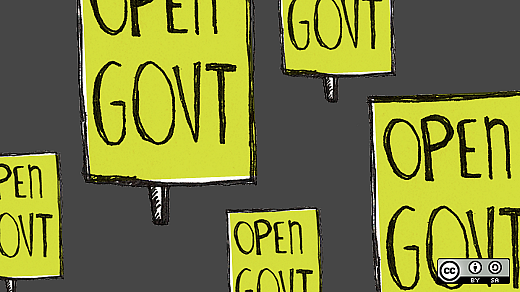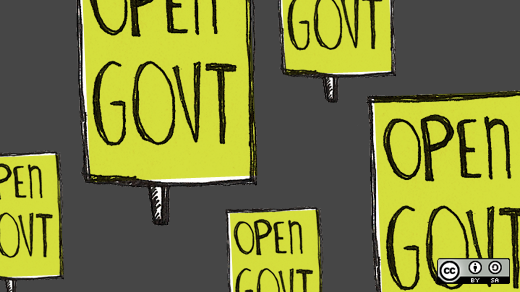Slap: Public Records Law Gives Agencies Acres of Wiggle Room

 At the end of my recent post about Parkland Memorial Hospital repeatedly suing the Texas Attorney General to block access to public records, I made a bet.
At the end of my recent post about Parkland Memorial Hospital repeatedly suing the Texas Attorney General to block access to public records, I made a bet.
I asked readers to show me a case where a state attorney general had been sued five times by a public hospital to block access to records.
I didn't know the half of it.
Reese Dunklin, one of the writers at The Dallas Morning News whose reporting has prompted these cone-of-silence lawsuits, told me that the hospital's lawsuits were just the public display of an ongoing struggle behind the scenes for the paper gain access to records. The problem is rooted in the state's public records law, which appears to be quite elastic.
This is how it works.
When Parkland receives a request, it can take up to 10 business days to respond, either by handing over the records or by seeking an opinion from the attorney general. The 10 days is typical for public records laws. What is not typical is how often Parkland opts to seek a legal opinion.
Parkland also can opt to take an extra five business days just to get ready to contact the attorney general This means that if you put in a request on a Friday morning, an agency in Texas could take nearly three full weeks to start the process of getting an opinion from the attorney general about whether you should be allowed to see the records. This is, again, a favorite tactic of Parkland.
And here's where that tactic really pays off. The attorney general has 45 business days to arrive at a decision and can take an optional extra 10 days. Now that initial three weeks starts to sound like a quick turnaround.
If the attorney general decides in your favor, the agency has another 30 days – calendar days – to turn over the records. Assuming the agency does not fight this decision – and in Parkland's case, that is not a good assumption – you could make a request today and not see the records until you would not see records until well after Valentine's Day 2012 and perhaps closer to Easter. Do you feel a little like Charlie Brown forever waiting for that love letter?
"The roadblocks forced us to hire a full-time public records lawyer, and the newspaper has filed four lawsuits in state court to compel the hospital and medical center to follow the open records law," wrote Maud Beelman, the Morning News' deputy managing editor, in a piece for Nieman Watchdog. "In response, the taxpayer-funded institutions have hired additional law firms, including one headed by a former Texas Supreme Court justice, and developed lobbying plans to try to force the state Legislature in 2011 to weaken the Texas Public Information Act. They have also hired public relations consultants to try to create public skepticism about the findings of our investigation into what have been two of Dallas's most-venerable institutions."
Parkland's attorneys have become adept at taking advantage of any loophole in state law or, when necessary, creating a new loophole. Brooks Egerton at the Morning News made a simple request for an updated spreadsheet of hospital employees - a spreadsheet the hospital had released in prior years. That prompted a hospital attorney to go fishing for reasons that the spreadsheet might be declared off limits. Egerton writes:
Michael Silhol, Parkland's top lawyer, reacted to my request by inviting employees to contact him if they believed that giving the newspaper basic personnel information "would subject you to a substantial risk of physical harm."
Silhol referred to a new state law that potentially privatizes some records related to public employees, but he didn't give the Texas Government Code's description of information that may be withheld about a public-hospital staffer. It is information that: "could reasonably be expected to compromise the safety of the individual, such as information that describes or depicts the likeness of the individual, information stating the times that the individual arrives at or departs from work, a description of the individual's automobile, or the location where the individual works or parks."
I didn't ask for anything like that - just names, job titles, pay, gender, ethnicity, start dates, employee ID numbers and work phone numbers.
And then there are the costs involved. The University of Texas Southwestern Medical Center, which partners with Parkland in teaching medical residents, suggested that the Morning News would have to pay more than $1 million to see its check register for the last five years, despite the fact that agencies across the state regularly post their registers online for free. The suggestion came during a conference call with Leah Hurley, vice president for legal affairs at UT Southwestern Medical Center. As Ryan McNeill, a USC Annenberg National Health Journalism Fellow and the reporter on the conference call, wrote:
When Joe Larsen, a public information lawyer working for The News, introduced himself midway through the call to discuss the proposed cost, Hurley abruptly hung up. After The News called back, she complained that no one told her the newspaper's attorney was on the line. Larsen told Hurley that the Texas Public Information Act did not allow the university to charge for its discretionary check of millions of electronically redacted records. This week, the university backed off its original claim and sent The News a new cost estimate: $2,884.60.
What agencies in Texas and everywhere else seem to forget is that the longer they take and the more they threaten to charge for public records, the more reporters begin to think they have a really good story by the tail.
Questions? Opinions? Leave them in the comments section below or write me directly at askantidote@gmail.com. To read more of my Slap posts, click here.
Photo credit: opensourceway via Flickr
